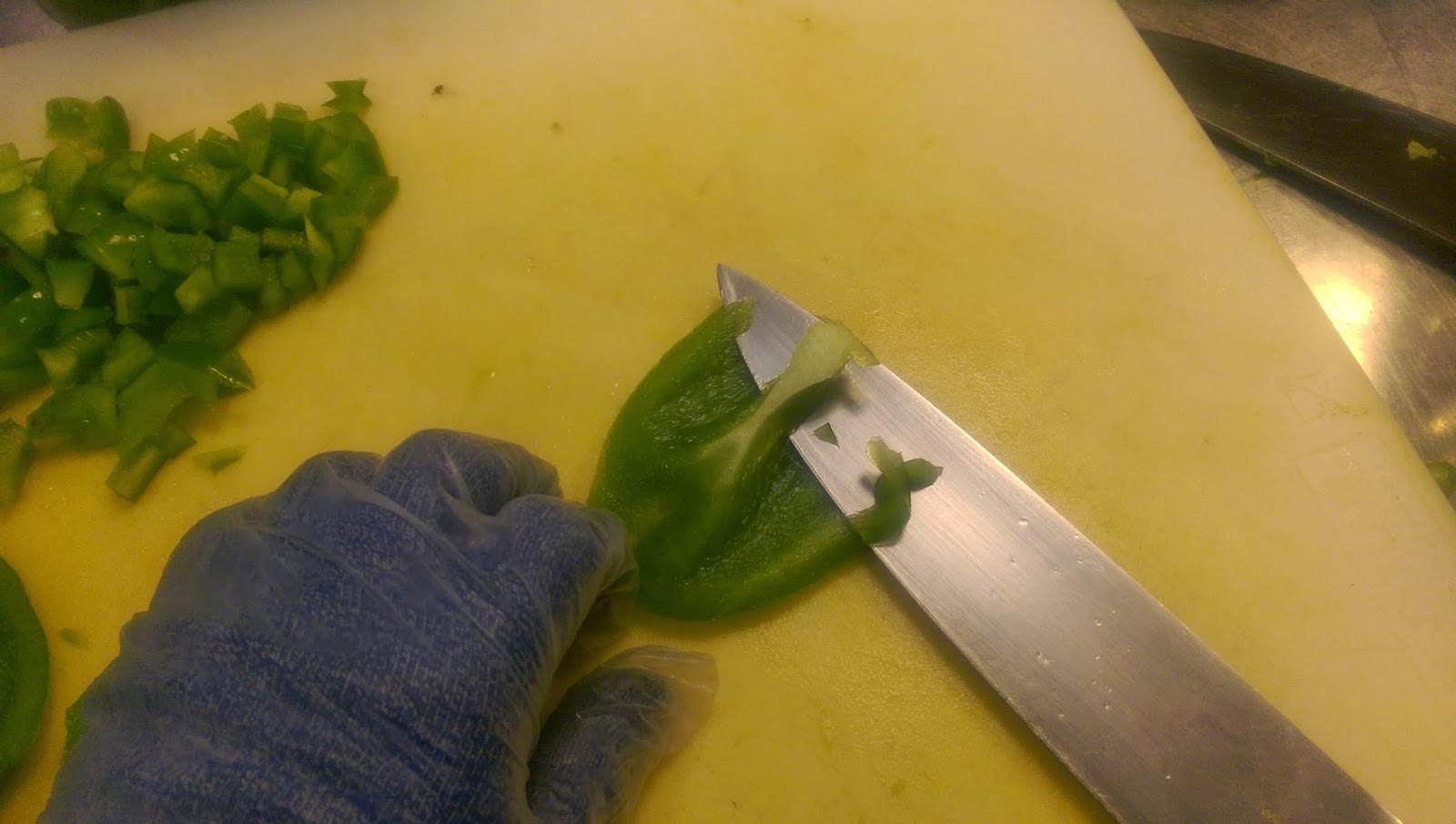They go by many names. They have many jobs. These jobs are often the lowliest, crappiest, most overlooked and easily forgotten ones in the kitchen. I would bet that most people outside of the profession have never even given these hard workers even the fleetest thought. I would be willing to bet even most cooks and others that work in the kitchen don't think about them. Who am I talking about? Sometimes they are called utility staff or stockers. More often than not they are simply known as the dishwashers. This group of people is absolutely indispensable for any working to kitchen to function as a cohesive unit.
When a kitchen is running as a well oiled machine, these men and women
are the oil that makes it all happen. Some may be asking why this is
the case. It is not a simple answer.

The utility staff often takes roles that are time consuming but still vital to the entire operation. Lets start simply with the function that they are normally hired to do: wash the dishes. This may seem straight forward, but you have to keep in mind that washing dishes in a professional kitchen is not like washing dishes at home. You don't just simply wash a couple of pots and pans and the dishes from after a meal. OH NO! Here they must keep up with a pile of dishes that usually starts piling up from the beginning of the day until well after the doors close. Some times they are dealing with leftover dishes from the night before. It is non stop. First it starts with the pots and pans used by the cooks. More often than not as soon as one cook is done with a certain pot, another cook will need it due to not having another one in the kitchen of that particular type. Dishwashers must constantly keep restocking the kitchenware. This includes pots, pans, serving dishes, as well as any and all utensils. Not only do they have to do this all day, but they have to do it in a timely fashion. It is not unheard of for a cook to come into the dish area asking for a particular item to be cleaned "on the fly". And oh unlucky is the dishwasher that ends up on the receiving end of a cook's screw up. What I mean is when a cook burns or scalds something it is usually the dishwasher who ends up scouring and cleaning it up. Even if the chef makes the cook clean it up or the cook himself offers to do the work, most dishwashers will rather do it themselves for the simple fact that they can do it better and faster. Once meal service starts dishwashers now also have to contend with all the dishes, utensils, and drinkware that is being used for that meal service. And if that were not enough, they will also start to wash any and all cookware and serving dishes used during the meal. That is a lot to keep on top of, even with the use of warewashing machines.

In most cases just because a person is hired as a dishwasher that is not the only role they will play. This is especially true if they fall under the job title of utility worker. What that means is that the chef can then call on them to fill in any number of holes, from prep cook (peel a whole lot of potatoes) to cashier (usually with a little more training). Utility workers are often the ones that take out the trash during shifts. They are also sometimes the ones who clean the equipment between uses and at the end of the day. More often than not they are also the ones who put up the orders from the produce and meat as well as other purveyors. If you can't find something usually the utility staff will know where it is or if there is any in house because they put it away. This versatility means that they can do these mundane tasks while those with the specific skills to actually operate and execute the menu are free to do so.

As stated previously, most of these jobs are boring at best, unpleasant more often than not and sometimes down right gross. Washing dishes and dealing with other people's left over food on a plate is not anyone's idea of a good time. Taking out the trash at all hours of the day with God knows what in there is nasty. Having to put away 150 cases of frozen food from Sysco after having put away easily over a hundred pounds of produce is not easy.
What really makes the people who work these positions is that it is very uncommon for them to complain. In my experience most utility workers have a good attitude, are happy to do the job and go well above the expectations put on them. When asked to so something I usually get a "sure, let me just finish what I am working on right now!"
Ask any chef who are the most crucial people working in the kitchen and chances are they will point to the dishwashers/utility staff. Without them, the kitchen be thrown into disarray and grind to a halt. When someone like that is missing all those tasks must fall to someone else to get done. So the choices for a chef at that point are to assign one of his cooks so that the line suffers, or just do it himself. The next time you are in a restaurant or dining facility of any kind keep your eye open for these heroes of the kitchen.















